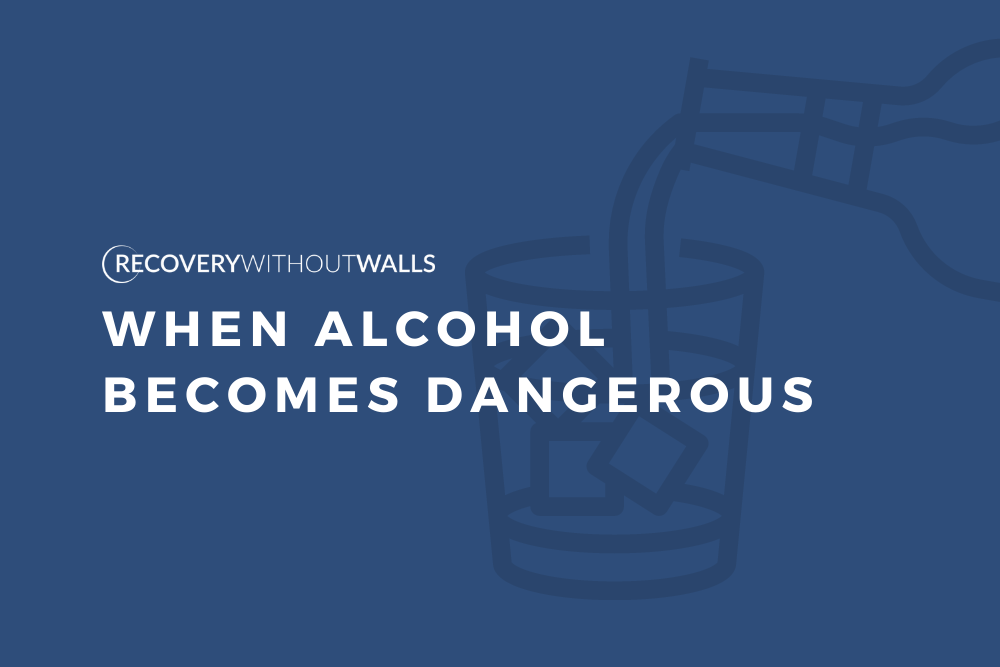
The Dangers of Alcohol
Alcohol is a prevalent aspect of our society, and chances are, you have either known someone or have personally experienced some of the negative effects associated with drinking. Drinking, especially in excess, can result in long-lasting physical and mental health issues, so it’s important to be aware of the potential ramifications before you decide to engage in this practice.
Drinking in Excess
Drinking alcohol is not always a negative experience, but consuming an excess of the substance can lead to a number of unintended consequences. So what is considered “excess” when it comes to consuming alcohol? Excessive drinking is qualified based on the number of drinks a person has or the circumstances in which they have an alcoholic beverage. For example, binge drinking is defined as a pattern of drinking that brings a person’s blood alcohol concentration to 0.08% which is above the legal driving limit. Circumstances that are defined as inappropriate for a person to drink also fall under the category of excessive drinking. These circumstances could be underage drinking, consuming alcohol while pregnant or against the recommendation of a doctor, or in a socially inappropriate setting.
The Effects of Alcohol
While excessive drinking is concerning behavior in and of itself, one of the more concerning aspects of this practice is the effects alcohol can have on a person’s body. According to the National Institute on Alcohol Abuse and Alcoholism (NIAA), drinking too much can have a number of long-term health effects:
- Heart issues (high blood pressure, irregular heartbeat, stroke)
- Liver damage
- Pancreatitis
- Various types of cancer
- Weakened immune system
The likelihood of experiencing one of these health issues increases based on how long a person engages in a pattern of consuming alcohol in excess and the amount of alcohol they consume. Short-term effects can also be a reason for concern and include:
- Dizziness
- Nausea and vomiting
- Difficulty concentrating
- Changes in mood
- Irritability
You may notice these changes are uncharacteristic of the person who is drinking and grow in intensity as they consume more of the substance.
Dangers of Excessive Drinking
Outside of the negative health effects of excessive alcohol use, there are also a number of life circumstances that can be affected by this practice, some of which are incredibly dangerous. Some of these dangerous circumstances include:
- Development of a substance use disorder
- Involvement in a vehicular accident due to driving under the influence
- Legal issues related to a DUI
- Loss of relationships
- Financial challenges
According to the National Institutes of Health, in 2019, 14.5 million people ages 12 and older had a diagnosable alcohol use disorder. This is a staggering number as it represents 5.3% of this age group. Developing a substance use disorder creates dangerous patterns of craving the substance and can result in a number of risky behaviors.
Excessive drinking can also increase the likelihood of you being involved in a situation where you are driving under the influence. Whether it is getting pulled over and paying a fine, serving jail time, or being the cause of a life-altering accident as a result of reckless driving, the effects can be long-lasting and psychologically damaging.
You may also notice a loss of relationships due to your need to continue drinking at the level you have been. As friends and family become concerned or are made uncomfortable by this, they may begin to distance themselves and limit contact. This can feel isolating and leave you without the social support you have had in the past.
Hope for Alcohol Use Disorders
If you’ve noticed a pattern of excessive drinking in yourself or in someone you love, you might be feeling helpless, but there is help available at Recovery Without Walls. Our specialized treatment for alcohol abuse utilizes safe, medically-based practices to ensure you receive the best treatment possible. If you’re ready to take the first step towards recovery, contact our team of professionals today.




